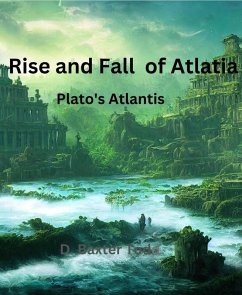Based on the priest's timeline (and Plato's given chronology of 9600 BC), Atlantis is placed in the 10th millennium BC at the beginning of the transition from the Paleolithic to the Neolithic via the interim Mesolithic. Plato did with Atlantis just as Homer did with Troy a few hundred years earlier. He based his story of Atlantis on a real setting and a prehistoric civilization known to ancient Greeks.
Modern scholarship tends to dismiss Timaeus's history, considering him a literary construct by Plato, opining that the legend of Atlantis was almost certainly invented by Plato to promote the political ideal of his masterwork. To deny Atlatia (Plato's Atlantis) is to deny an important and significant part of African pre-history and heritage. Ancient Atlatia (Plato's Atlantis) emerged from a specific amalgamation of peoples in the post Ice Age Sahara;, a core group native to the central Sahara, and a related miscegenated group in the western Sahara.
Dieser Download kann aus rechtlichen Gründen nur mit Rechnungsadresse in A, B, CY, CZ, D, DK, EW, E, FIN, F, GR, H, IRL, I, LT, L, LR, M, NL, PL, P, R, S, SLO, SK ausgeliefert werden.









